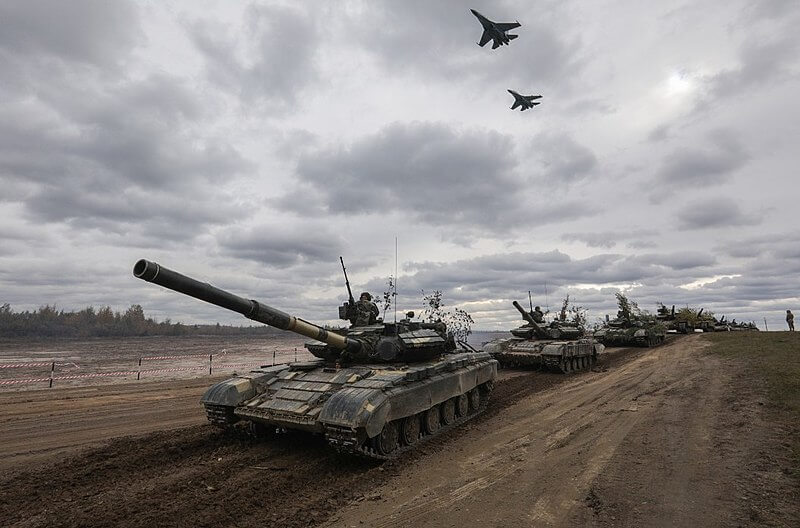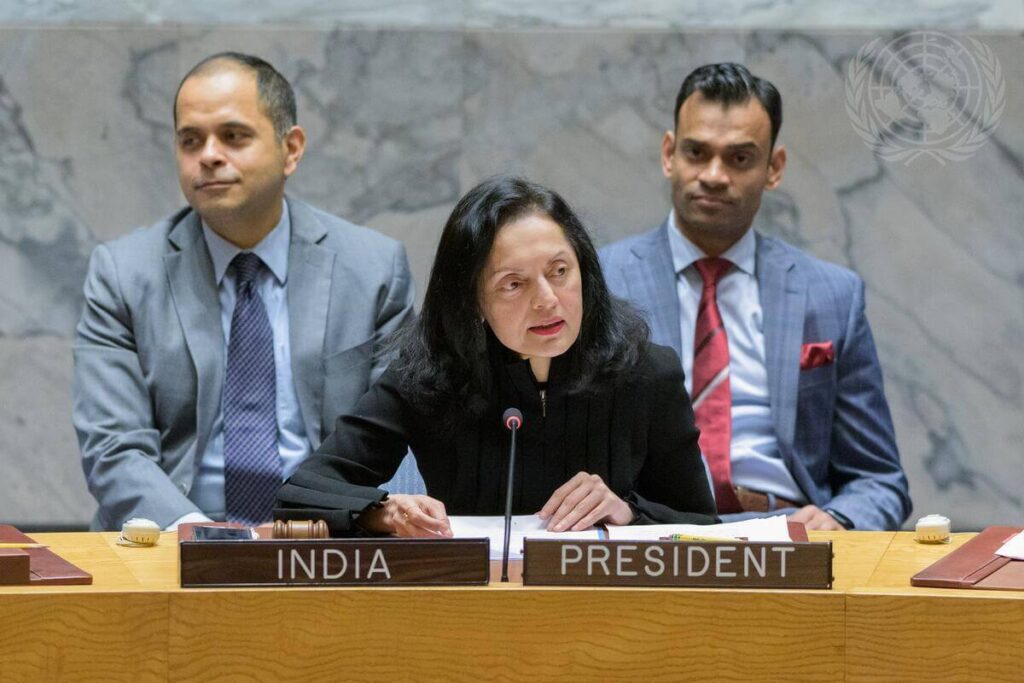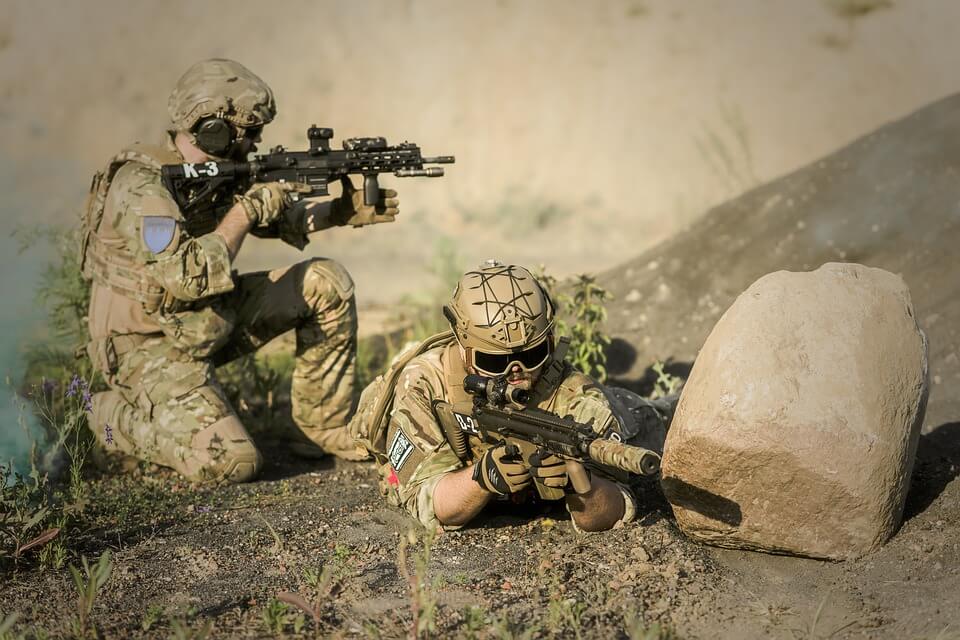
The youth are the future of this great nation. I do believe that every generation is a better generation than the previous one as part of the evolution theory.
As India assumes the title of the most populated nation, its actual strength lies in its large, dynamic, and young median age, with 65% of Indians being under 35 years old. That accounts for 600 million people aged between 18 and 35. Of course, there are bound to be many challenges in leveraging this segment of the population in the right direction. School education would surely play a primary role in this objective.
Some global observations

Having lived in both the 20th and 21st centuries, I sometimes ask myself, ‘Is the world more divided than in the past?’
During the 20th-century Cold War era, power rivalry and competing spheres of influence defined global politics in a bipolar world. The disintegration of the Soviet Union in 1991 paved the way for a US-led unipolar world that exhibited exceptionalism and unilateral intervention norms.
However, the 21st century has seen Chinese belligerence, the resurgence of Russia, and the Western alliance led by the USA, as witnessed in the recent Ukrainian conflict, which has sown the seeds of a new Cold War 2.0 and the emergence of possible new power centres in this strategic contestation.
While Ukrainian President Zelensky has stated that the war in Ukraine has united the West, it is also true that it has divided the West from the rest. The gap between the West and the rest goes beyond the rights and wrongs of the war. Instead, it is the product of deep frustration—anger, in truth—about the Western-led mismanagement of globalization, unilateral interventions, and exceptionalism since the end of the Cold War.
The Russia-Ukraine war is not about democracy against autocracy, as being played out by the West. The fact is that two-thirds of the world’s population lives in countries that are officially neutral or supportive of Russia. These countries do not form some kind of axis of autocracy; they include several notable and highly respected democracies, such as Brazil, India, Indonesia, and South Africa.

Ironically, today we face a nonlinear world of a liberal international order where rules are defined and redefined with ease. Strategic ambiguity and the militarization of all elements of national power are gaining increased visibility. The only predictability is unpredictability, and self-interest is the only interest.
Tectonic and revolutionary changes in the global security environment are creating geopolitical fragility on an unprecedented scale, from the Indo-Pacific to the trans-Atlantic. The causes are known, but the effects are unprecedented. We see the decline in US global power status and its retrenchment, China’s assertive rise and global realignments, upheaval in Europe and a revanchist Russia, turmoil in the Islamic world with terrorism engulfing the Middle East, North Africa, and Central Asia, yet its lexicon remain undefined.

In international relations, the power transition theory (1958) stated that whenever there is a transition of power or its contested likelihood, the chances of conflict and turbulence in the system often multiply. We see that in the world today.
Amidst all this turbulence, we see India engaging in a fine balancing act. India faces challenges of external and internal balancing in pursuit of its national interests. The Russia-Ukraine war has brought its own dynamics and lessons for India. Global power plays, the extended neighbourhood, and the immediate neighbourhood all pose dynamic challenges, as does the internal domestic front.
Defence, diplomacy, and developments are the three integrated foundational constructs of a progressive nation. Most importantly, defence empowers the voice of diplomacy to be heard and acts as insurance for the development of the nation. Thus a nation is as strong as its hard power.

India’s inclusive growth faces challenges of balancing the trio of US-Russia-china; turbulence of the immediate neighbourhood, which has its own fallouts, and internal faultline challenges, which are often exploited by those forces inimical to the national interest.
Five postulates: Geopolitical instability redefining global equilibrium
Firstly, international relations and liberal international order are not a linear trajectory but it’s all about slants and crosses
There are both divert and convergent national interests at the same time between nations making the relationship complex and issue-based. So the art of international relations in the 21st century is to leverage the geopolitical opportunities for the furtherance of national interest and the science of international relations is to decentralise globalisation.
Secondly, the world is seeing a transition to a “multi-engagement” not a “multi-polar” world order shaped by the competition to secure strategic connectivity and scarce resources with overlapping and often conflicting interests
While the debate is on bipolar and multipolar world order, the truth seemingly is unfolding in multiple directions of multi-engagement. On one end of the spectrum, it continues to be largely state-centric concerned with the structures of the balance of power, polarity, and collective security. At the other end is a widening agenda of multiple orders, which encompasses new trade order, new energy order, new financial order, new economic order, new environmental order, new human rights order etc. Therefore, it is not the model, which is important, but its elements that will determine not only war and peace but also the future stability of global energy, food security, global supply chain, financial system, environment security, health care, human rights etc.
Thirdly, conventional wars are here to stay and 21st-century wars are never-ending wars
Non-kinetic and kinetic domains are only an integrated continuum of warfare. Cyber, space, information, trade, and finance have all become inseparable parts of future conflicts. This necessitates that armed forces enmesh these while planning and formulating future strategies. The reality is that hard power remains indispensable for both deterrence and warfighting to pursue national interests in a zero-sum world. The levers of this hard power, however, must rest on the foundation of self-reliance, adequacy of resource allocation, and harmonious civil-military relations. Further, increasingly 21st-century wars are never ending and demand the desired war endurance stamina.

Conflicts have also become a kaleidoscopic phenomenon of information warfare played on the social media battlefield. Perception management has become the new centre of gravity and narratives are the weapons to capture the psycho-cultural high ground. As the war in Ukraine is reaffirming, nationalism, politics, society, and people are the new players in this battlespace and the contest of will is as much about people as politics. Military leadership needs to be attuned to these realities.
Fourthly, the rule-based world order or international humanitarian law does not exist
The 20th-century archival global mechanisms like the UN, essentially the advantage of a select group, have failed to transform with time in modulating global peace and international norms of behaviour. The USA brand of exceptionalism leading to multiple unilateral interventions, Chinese belligerence, and incremental expansion, and Russia’s Crimea and Ukraine war have illustrated that the idea of a global ‘rules-based order’ of international governance is based on inaccurate assumptions.
Food for thought:
“Does the law regulate the powerful or do the powerful regulate the law?”
The truth is that the powerful do what they want to do because there is one set of norms they apply for others and yet rubbish the same for themselves. Reversing the global tide of “authoritarian nativism” requires the legal systems to be transformed and be more inclusive than being the exclusive domain of the elite.
The case of the UN Security Council veto, at the apex of the international system, provides a useful lens for thinking about how all international institutions need to rebalance the way they work to recognize the realities of modern power and transnational threats like cyber, terrorism and proxy wars.
Fundamental reform that would change the number of veto-holding states on the council is repeatedly blocked by the chosen few who fear the loss of control. But the ongoing conflicts in Ethiopia, Syria, Ukraine, and Yemen provide telling examples of how impunity reigns when the security council is paralyzed by the veto or the threat to use it.
Similarly, let’s see the human rights angle. It is also argued that the West has shown far more compassion for the victims of war in Ukraine than for the victims of wars elsewhere. The UN’s appeal for humanitarian aid for Ukraine has been 80 to 90 per cent funded. Meanwhile, the UN’s 2022 appeals for people caught in crises in Ethiopia, Syria, and Yemen have been barely half funded.
Finally, the provision of covert weapons, proxies, and tools of sanctions is self-defeating as part of the long-term strategy
Sanctions are an abject failure. Sanctions don’t change nation-states’ behaviour but have an adverse ripple effect on the global system, particularly the third-world economy. The powerful under-sanction easily dodges its effects and historically has boomeranged stronger. Sanctions rather than stability create geopolitical instability by creating new poles and power centres. Nations will have to build resilience to overcome the threat of sanctions with a long-term self-sufficiency strategy and minimum external advantage.
Conclusion

Today India stands tall moving from a spectator to a player in the global arena. It is here that we must further the cause of inclusive growth, mutual trust and peaceful coexistence through a more inclusive international order and institutions.
The idea of India is based on secular threads and unity in diversity. This was a result of an over 5000 years old time-tested system based on “dharma-artha-kama-moksha”. The idea of India embraces the Upanishad’s world view of Satyam Meva Jayate”(Sanskrit: “truth alone triumphs”) and Vasudhaiva Kutumbakam is a Sanskrit phrase found in the Upanishad, which means, “The world is one family”.
Also Read: Insomnia: a major cause of concern among today’s youth
Ancient India or Bharat Varsha was indeed a strong nation, with a strong economy and a glorious culture with the power and the strength of knowledge and character. Today we have a window of opportunity to get back the glory of Bharat Varsha and the youth will be the movers and shakers, as the beneficiaries. The nation has full confidence in the youth and the youth must never fail the nation with the ethos of the nation above all.

